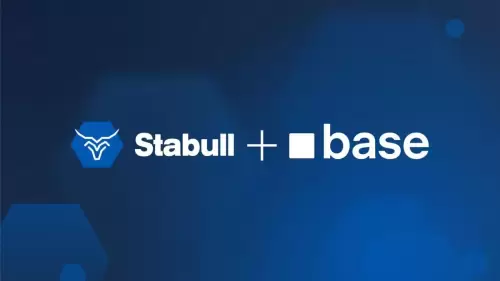 |
|
 |
|
 |
|
 |
|
 |
|
 |
|
 |
|
 |
|
 |
|
 |
|
 |
|
 |
|
 |
|
 |
|
 |
|

The topic of quantum computing and its implications for Bitcoin security has become increasingly pressing as investments continue to pour in and certain companies like IBM, Google, and Microsoft—notwithstanding growing skepticism among serious researchers regarding recent high-profile projects such as Google’s Willow and especially Microsoft’s Majorana 1—are showing some progress.
To be sure, at the dawn of classical computers, they were also extremely bulky and underpowered, and today even an entry-level smartphone massively outperforms them, not to mention flagship devices. But still, if comparing a 2025 flagship smartphone to a 2023 entry-level one, the difference in performance is significant, showcasing rapid technological advancement.
This raises valid concerns regarding the resilience of even the most advanced encryption algorithms, especially considering they secure private and government communications and hold massive capital stored in Bitcoin and other cryptocurrencies. While it’s impossible to define the exact timeline for quantum impact on Bitcoin, it is already worth exploring: how does quantum computing affect Bitcoin, is Bitcoin secure from quantum hacks, and is there even a quantum threat to blockchain encryption?
What Is Quantum Computing?
Before diving deeper, let’s briefly cover the fundamentals of what quantum computing actually is. Of course, fully grasping all its aspects requires a deep understanding of the math and physics behind it. However, we’ll focus on the key concepts necessary to understand the core of the issue.
Quantum computers are computational devices that approach the logic of computation from a fundamentally different perspective. Classical computers rely on transistors that either allow or block the flow of electrons. Using vast networks of these transistors, they implement binary logic, reducing all information to bits — either “0” or “1.”
Quantum computers, on the other hand, operate on an entirely different level. They use different classes of materials and manipulate subatomic particles such as quanta instead of electrons, relying on distinctly quantum phenomena like superposition and entanglement. To delve deeper into the hardware of quantum computers would require a thorough understanding of quantum mechanics — which would be excessive for now. What matters here is what this enables: quantum computers process information using qubits, which, thanks to superposition and entanglement, can exist in multiple states simultaneously — essentially between “0” and “1.” This allows for non-binary logic and enables parallel data processing on an exponential scale rather than sequentially, as in classical computing. As a result, it opens the door to solving problems that are practically unsolvable even for the most powerful classical supercomputers within any reasonable timeframe.
To put it simply, if you were to take all currently existing supercomputers and combine their power to solve a certain class of problems, it could take millions—or in some cases even billions—of years. We’re talking about literally astronomical numbers, sometimes exceeding the age of the universe or the estimated number of atoms within it.
While not every case is that dramatically large, most of the mathematical problems that form the foundation of the encryption algorithms securing the entire internet fall into this category of requiring an unreasonable amount of time to be computed. Classical cryptography, in particular, relies on mathematical problems such as large number factorization (RSA), the discrete logarithm problem (DSA, DH, ECDSA), and finding hash collisions (SHA-1, SHA-2). These are considered “one-way” problems—easy to compute in one direction but extremely difficult to reverse.
Those familiar with the technical underpinnings of blockchain and cryptocurrencies in general—and Bitcoin in particular—already know where this is going. The security architecture of Bitcoin is built on two key cryptographic mechanisms — SHA-256, which ensures data integrity, and the ECDSA (Elliptic Curve Digital Signature Algorithm), which handles authentication.
SHA-256 and Quantum Computing Risks
SHA-256 is a cryptographic hash function from the SHA-2 family, developed by the U.S. National Institute of Standards and Technology (NIST), which primary purpose is to generate a unique and deterministic 256-bit hash from any input message. In Bitcoin, SHA-256 is used in two key areas: (1) to construct the blockchain itself—each block contains the hash of the previous block, ensuring data immutability; and (2) in the Proof-of-Work mechanism, where miners iterate over nonce values to find a hash that meets the target difficulty. The use of SHA-256 makes it infeasible to reverse-engineer the original message or find collisions under classical computing assumptions.
ECDSA and Quantum Computing Risks
ECDSA is based on the computational difficulty of the elliptic curve discrete logarithm problem and is used to create and verify digital signatures in transactions. When a transaction is created, the owner of the funds uses their private key to generate a signature, which can then be used to verify by any network participant using the corresponding public key. The security of ECDSA in the classical world relies on the fact that deriving a private key from its public counterpart requires exponential time.
Together, those two algorithms provide the
免責聲明:info@kdj.com
所提供的資訊並非交易建議。 kDJ.com對任何基於本文提供的資訊進行的投資不承擔任何責任。加密貨幣波動性較大,建議您充分研究後謹慎投資!
如果您認為本網站使用的內容侵犯了您的版權,請立即聯絡我們(info@kdj.com),我們將及時刪除。
-

- 以太坊,交易量和SEC的積分:導航監管景觀
- 2025-08-06 22:05:31
- 以太坊的交易量在SEC Staking指導中湧現,提出了樂觀和監管問題。這對Defi和Crypto的未來意味著什麼?
-

- 加密市場的嗡嗡聲:證明是共同案例,二元列表令牌
- 2025-08-06 22:00:30
- 加密市場將新的動態視為簡潔的象徵性收益在Coinbase和Binance等主要交易所的列表之後。是什麼推動了這一激增?
-

- 巴西,比特幣,聽證日期:巴西要擁抱比特幣嗎?
- 2025-08-06 20:00:10
- 巴西代表會議將於2025年8月20日舉行公開聽證會,討論在其國家儲備中增加比特幣。這可以改變遊戲規則嗎?
-

-

- Wewake Finance:這是您一直在等待的加密ROI機會嗎?
- 2025-08-06 20:00:00
- 探索Wewake Finance對Web3可訪問性的創新方法及其在不斷發展的加密景觀中的高ROI潛力。
-

- Pancakeswap,美國股票和永久合同:Defi的新邊界
- 2025-08-06 19:53:39
- Pancakeswap潛入美國的股票代幣永久合同,與傳統的金融架起融合。這是分散交易的未來嗎?
-

-

- 加密,東盟和菲律賓:Web3的後起之秀?
- 2025-08-06 19:51:28
- 菲律賓將自己定位為東盟的Web3中心。即將舉行的事件和像特朗普這樣的主要參與者會加速加密貨幣的採用?
-






























































